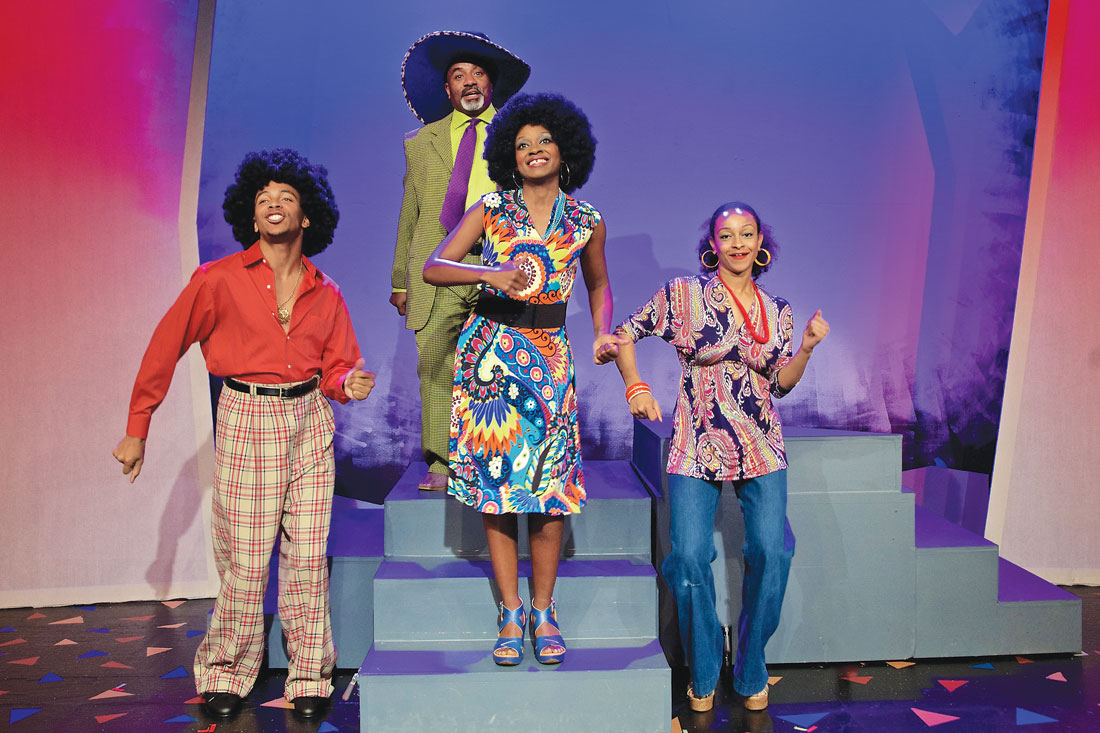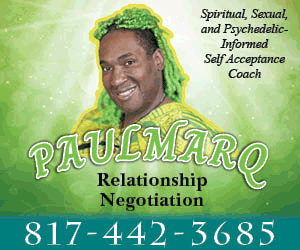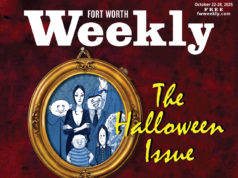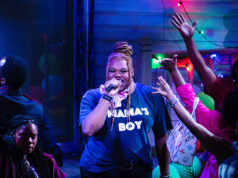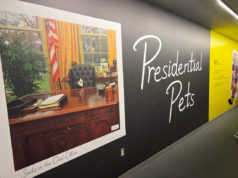Right now, we all could use a little more African-American righteous anger in our lives. If you don’t believe me, just watch the videos of poor Walter Scott and Eric Harris being killed by cops. Or you can watch something that’s less depressing and more uplifting and head to Jubilee Theatre.
Don’t Bother Me, I Can’t Cope is a revival of an acclaimed musical from 1971, and while the original material’s flaws are apparent, the production does come to us at a particularly apt moment.
The show has no plot. Instead, it’s a revue with 10 actors (five men and five women) performing songs in various musical styles on subjects ranging from poverty to the gender gap in salaries to the small indignities of everyday racism. The only feature on an otherwise bare stage is a raised platform whose halves break apart and are manipulated and reconfigured by the actors. A set of staggered screens at the wings provides both an entryway onto the stage and a separate performing space. Director Akin Babatundé and choreographer Shaté Edwards work ingenious variations on this setup, keeping the actors moving and sometimes having them bring on cylinders that are painted like trash cans but serve as stools or containers for costume changes. The actors wear all-black outfits as a base but layer on more colorful clothes at various points to keep the show from being visually monochromatic. The number that opens the second act, “Love Power,” features the actors in full 1970s regalia, complete with bell bottoms and Afro wigs.
Some of the staler references (like the one to Chicago’s powerful then-mayor Richard Daley) have been removed, but they haven’t been changed out for more up-to-date ones. As a result, some of the ones that have remained might require some explaining for the younger crowd, but others are still oddly resonant with today’s world, like the line, “Nixon went to China / While Bobby Lee Jones went to Vietnam. / Now he’s gone / And ghetto life goes on and on.” Songwriter Micki Grant’s music — heavily influenced by jazz, R&B, and gospel — has actually dated more than the lyrics, a testament to the utter transformation of African-American musical expression in the last 44 years.
There are other reasons you can see why the show hasn’t been revived more often. This production appears to have rearranged the order of the numbers from the original, but it doesn’t look to have made much difference in terms of dramatic impact. The jumble of styles and tones reflects the multifaceted approach that the show is trying to take in depicting African-American life, yet the play doesn’t gain power or complexity as it goes on. The momentum sags noticeably in the second act.
For all that, the show’s grasp of the social forces holding back the black community means that it’s still sadly relevant today. The spirit of the more militant 1970s speaks to the moment as well, when large segments of society are fed up with unarmed black men being killed by police. Don’t Bother Me’s crusading fury could be exhausting, but Grant and the show’s author, Vinnette Carroll, cut the anger with parody, satire (the title song), romance (“Thank Heaven for You”), and high-energy dance numbers (“Good Vibrations”). The first act closes with two rousing songs of affirmation, with the women singing the feminist empowerment song “Show Me That Special Gene” and the men performing the ballad “My Name Is Man.” These positively charged numbers send you into the intermission on a high.
The show has a strong cast of musical performers, though does that still need to be said about a Jubilee production? The singers are at their best in the ensemble numbers, though JuNene K, Gabriel Lawson, and Kyndal Robertson are the standouts when it comes to the dance parts. Their talents are well expended on a piece of African-American theater history that has been re-excavated at just the right moment.
[box_info]Don’t Bother Me, I Can’t Cope
Thru May 3 at Jubilee Theatre, 506 Main St, FW. $18-22.
817-338-4411.[/box_info]



